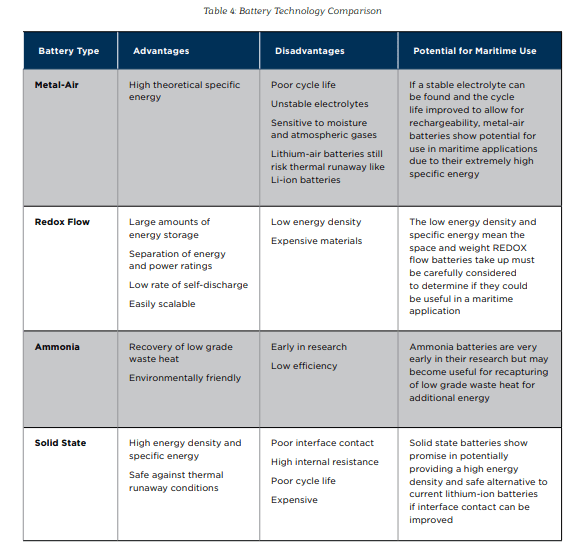ABS released its latest sustainability technology guidance exploring the potential of emerging battery technologies in shipping’s decarbonization.
According to the report, battery technologies and systems provide an opportunity to reduce fuel consumption and emissions to meet environmental requirements.
Lithium ion (Li-ion) type batteries currently lead battery technology in maritime applications, but safety risks and energy limitations have created a need to explore alternatives. At the same time, new promising alternatives include metal-air, REDOX flow, ammonia, and solid-state batteries.
As hybrid and all-electric vessels become more common as a means of reducing emissions, improved battery technology will be a requirement to ensure efficient and effective operation of environmentally safe systems. With so many developing technologies relying on a high-power, high-energy source of electricity, it is imperative that new battery technologies are developed and implemented.
…said Patrick Ryan, ABS Senior Vice President, Global Engineering and Technology.

Key findings
- Current lithium-ion batteries are sufficient for maritime applications, but their limited energy capacity and safety concerns indicate the need for next generation batteries to allow for advancements in maritime battery systems.
- Higher capacity batteries would allow for more efficient hybrid vessels and could potentially make all-electric vessels more viable.
- Improved battery systems also allow for renewable energy sources to better have their energy captured and stored, especially for discontinuous energy like wind and solar that are not always available.
- With so many developing technologies relying on a high power, high energy source of electricity, it is imperative that new battery technologies are developed and implemented.






























































